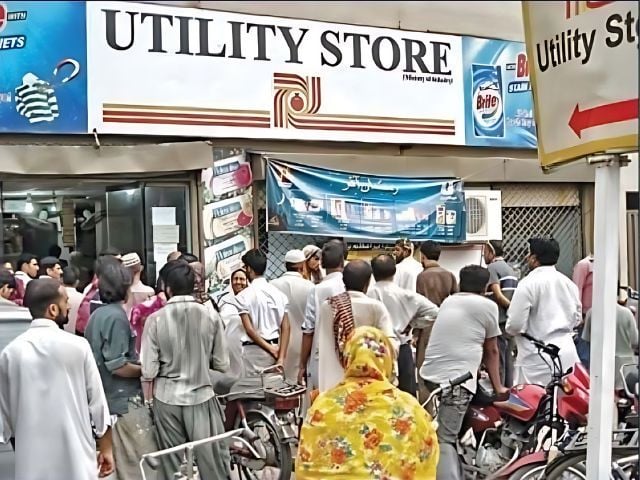With the end of the subsidy, these goods will be sold at regular market prices, stripping low-income families of the savings they once relied on to manage their household expenses

ISLAMABAD: The federal government is taking steps towards the closure of utility stores across the country, a decision expected to have a profound impact on millions of low-income families who have long depended on these stores for discounted essential goods. This development follows the government’s decision to discontinue a Rs50 billion subsidy that had provided significant relief to around 26 million deserving households.
During a recent Senate Standing Committee meeting on Industry and Production, the Secretary of Industry confirmed that the government is considering shutting down utility stores as part of a broader right-sizing initiative. This move, driven by financial constraints, aims to reallocate funds previously designated for the utility stores subsidy towards addressing the ongoing energy crisis, with a particular focus on providing relief on electricity bills.
The now-discontinued subsidy had offered up to 25 percent discounts on essential items such as flour, ghee, rice, sugar, and pulses. With the end of the subsidy, these goods will be sold at regular market prices, stripping low-income families of the savings they once relied on to manage their household expenses. The Secretary of Industry mentioned that an action plan for the closure of the utility stores is currently being developed, and a package for the affected employees is under consideration.
In addition to the discussion on utility stores, the Senate Standing Committee was briefed on the country’s auto policy. Officials from the Ministry of Industry and Production highlighted the growing need for warehousing in Pakistan, noting that a summary proposing warehousing as an industry is under consideration by the federal cabinet. The Economic Coordination Committee (ECC) has already granted approval, and the committee expressed full support for the warehousing policy.
The officials further disclosed that Pakistan produces fewer than one million cars annually. In the electric vehicle sector, 45 licenses have been issued for producing motorcycles and rickshaws. Currently, 13 car brands operate in the country, and up to five million cars could be manufactured domestically. The previous fiscal year saw the collection of Rs300 billion in taxes from car sales. However, concerns were raised by Senator Saleem Mandviwalla regarding the quality of cars manufactured in Pakistan, which he argued do not meet export standards.
- #UtilityStoresClosure,
- #LowIncomeImpact,
- #SubsidyEnd,
- #HouseholdStrain,
- #EconomicChallenges,
- #EnergyCrisisRelief,
- #AffordableEssentials,
- #GovtPolicyImpact,
- #ConsumerWelfare,
- #NationalEconomy,



